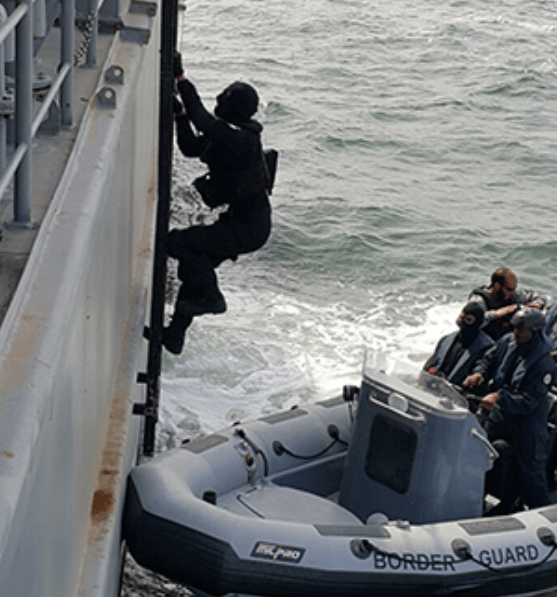Ship owners should stop attempting to perform crew changes in northern Mozambique while seafarers are at risk of attack or kidnapping by violent terrorist groups operating in the region, according to International Transport Workers’ Federation (ITF), which supports the calls by the Norwegian Maritime Unions (NMU) for a crew change suspension until the threat to seafarers’ lives reduces along the Mozambique coast.
The NMU has written to the Norwegian Shipowners Association (NSA) asking the body’s members to avoid the province of Cabo Delgado since violence escalated in recent weeks due to the growing power of armed Islamist organisations.
Now the ITF is extending the NMU’s call to all the world’s shipowners to steer clear of the conflict area, and to issue instructions to their ship management firms and manning agencies to do likewise.
“The security situation in Cabo Delgado is dire,” said Johnny Hansen, president of the Norwegian Seafarers’ Union, which is one of the three unions that form the NMU. “Foreign workers are being targeted by terrorists, and seafarers will be no exception. Their lives are in danger.”
“Asking seafarers to come ashore, to stay in Covid quarantine facilities, while the volatile situation happening outside risks their very lives? That is unacceptable. Seafarers could be killed or taken hostage on their way to airports and harbours,” he pointed out.
Hansen said that while the unions’ proposal does not solve the conflict or abate the violence being felt inflicted the local people, it was an important step to avoid hostage-taking becoming a viable revenue stream for the armed groups.
“All we are asking for is that the owners of ships serving northern Mozambique make alternative plans so that their crew changes can take place elsewhere, somewhere safer,” added Hansen.
ITF Africa regional secretary, Mohammed Dauda Safiyanu said Mozambique’s maritime unions were supporting the call for seafarers and international workers to avoid Cabo Delgado while the situation remained volatile, while other parts of Mozambique’s coast remained relatively safe to perform crew changes for international workers, including Biera, Nacala and Maputo.
“We are calling on Mozambique’s government to take all necessary efforts to foster peace and security in the war zone areas so that the people of Mozambique, and Mozambican transport workers, in particular, can pick up the pieces of their lives,” he said.
Hansen, who is also chair of the ITF’s Fisheries Section, said people had to view the conflict in Mozambique and the risks it presented to seafarers in the wider picture of the high seas being an increasingly dangerous place to work for seafarers, fishers, and other maritime workers.
“Just as we are seeing in the Gulf of Guinea with violent attacks by pirates on seafarers and fishers, and as we saw in recent years with assaults on foreign ships around the Horn of Africa: conflict zones and economic upheaval near coasts have the potential to increase the risk of opportunistic attacks on international maritime workers by armed criminals,” he said.







